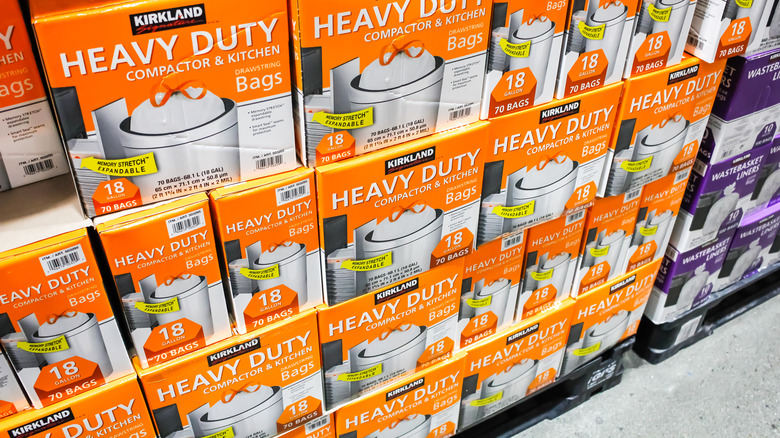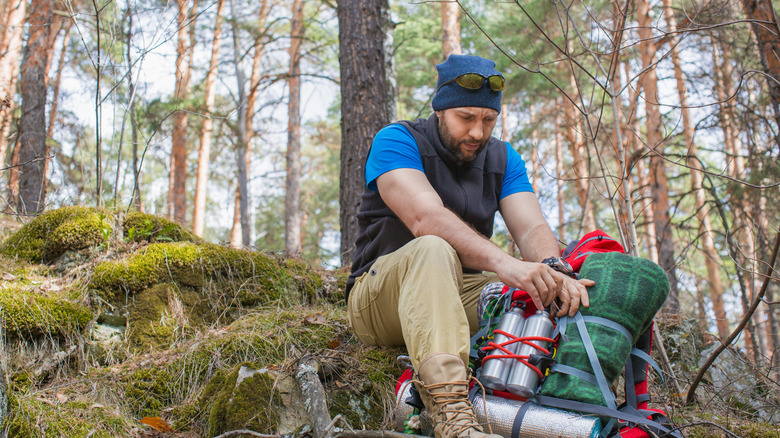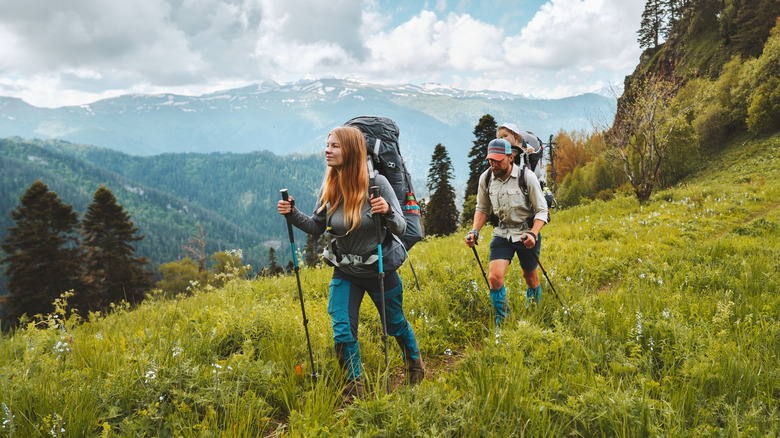Packing Tips And Hacks
Caitlyn Knuth
Heading out to explore and connect with nature begins with having the right gear. It’s not always so easy to keep your belongings protected from unexpected weather on a rugged hiking trail. While a waterproof travel backpack for your outing is essential, it can also be a significant investment.
For example, the 28-liter YETI Panga is a travel backpack that’s top-rated by the team over at Pack Hacker. It’s noted for its durability, convenient zipper, and more traditional backpack aesthetic. But the price tag sits at $300. Similarly, the Patagonia Guidewater Backpack offers 29 liters of waterproof space and is popular thanks to its external attachment loops, Fair Trade certification, and ability to remain dry while submerged. However, it’s going to cost consumers $299 to call their own.
Not everyone has this kind of money, and you might not want to spend hundreds of dollars on a new waterproof travel backpack if you don’t go hiking all the time. But you’re still going to want to protect your things from water damage. A simple — and far less expensive — alternative to purchasing a waterproof backpack is to use a trash bag as a liner for the backpack you already have at home.
Go for quality over accessibility

The Image Party/Shutterstock
It’s tempting to reach for a traditional garbage bag that you likely have sitting under the sink when you’re creating a DIY waterproof liner for your backpack. It’s an easy and accessible option. However, it’s a choice you could end up regretting because it doesn’t take much to poke a hole in many of these products, defeating the entire purpose of waterproofing. A better choice is to choose a trash compactor bag, which is considerably more durable. For a minimal $1 or $2 investment per bag, it’s going to keep your belongings dry all day long.
If you can’t get your hands on a durable trash compactor bag and have to go with a traditional trash bag, there are some brand-name options that prove more successful than others when it comes to waterproofing. The USA Today Reviewed team set out to evaluate the overall quality of brand-name trash bags on the market in 2023. Their results pointed to Glad ForceFlexPlus as a top contender for durability, specifically when it came to waterproofing. They found this bag could hold up to 43 pounds of water without breaking. It also remained tear-resistant even when packed with sharp objects.
Waterproofing techniques to try

Dmitry Belyaev/Getty Images
Lining your backpack with a trash compactor bag for waterproofing seems like a fairly straightforward process. It’s definitely not complicated, but you do have some options for how you go about getting your belongings settled and secured. The first strategy is to use the trash compactor bag in the same way you would a top-loading drybag. You’ll fill it with everything you want to protect, squeeze out the excess air, and roll the top down tightly to secure it in your backpack.
If your next hike happens to include a combination of items that don’t all require waterproofing, then you can fill the trash compactor bag with only those items that need to remain dry. Things like food that you want to access easily, or other items that don’t need to be protected, can sit on top of the bag and even function as an additional barrier. The added weight of these items will ensure the trash bag stays closed while it’s being jostled around.
Packing a few extra trash compactor bags for the road is highly recommended. They can easily be stored in the bottom of your backpack and kept together using oversized rubber bands that you might typically use for file folders. You can also use the rubber bands for securing the top of the trash compactor bag.

